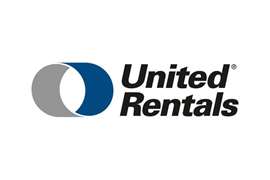Selling safety
24 April 2008

“Safety is an idea whose time has come”, says Tim Whiteman, managing director of IPAF (International Powered Access Federation). Few would doubt the current prominence of IPAF's training, indicated by 50000 PAL (Powered Access Licence) cards issued annually and over 200 certified training centres in 18 countries. There are three reasons for the rapid growth of the training: the type of training provided; the powerful incentives - financial and regulatory - for training centres and end customers; and a proactive approach to promotion of training.
Foremost is the type of training provided. In some countries, training is passing information describing specific characteristics of a machine new to a user. Mr Whiteman says such sharing is really just “familiarisation”. In contrast, IPAF's goal is to create a “thorough understanding of safe working at height. It provides a context of safe working practices for using virtually any machine.”
IPAF's training content reflects Mr Whiteman's belief that, “Users are the best people to devise a quality programme”. IPAF brought together 12 years ago users in the UK to get started in training, and that initial user orientation clearly remains. Strong also is content delivery by instructors, who have undergone instructional techniques training and who must participate in a continuous professional development programme. Content and delivery quality combine to secure certification to international standard ISO 18878.
However, a major quality challenge, says Mr Whiteman, has been to implement a worldwide regimen. IPAF's solution to this has four components. Three are: assessment of a training centre's facilities and instructors; an annual, scheduled audit of each training centre to assess records, availability of reference materials and facilities; and surprise audits of training, during which IPAF representatives become part of the student group.
The fourth component is Internet-based. IPAF requires the registration of every student and the specification of instructors 24 hours before training. This makes it easy to monitor the use of certified trainers and to determine instructor/student ratios, which is crucial to providing sufficient student “hands on” time and evaluation.
Incentives
“IPAF-approved training centres should make a profit,” says Mr Whiteman, emphasising one financial incentive for their proliferation. IPAF enhances centre profitability by only charging for each PAL card issued; centre managers are free to set training fees as they wish. A further incentive comes from the opportunity training provides to strengthen customer relationships.
There are financial benefits for employers, too. One German company, Minimax, which delivers fire safety systems worldwide, is shifting access training for over 1000 of its installers from the current in-house system to IPAF-certified training centres. Minimax's installations manager, Stephan Boock, says that over the next two years training will be switched to rental companies Zooom, Gardemann, Gerken and Schmidt. Meanwhile, Swiss-based conglomerate ABB is establishing its own IPAF-certified centre. At a cost of €35 per head for the PAL card, it is easy for companies to identify savings.
Another economic incentive for users is that trained operators are more proficient, which improves operating performance. Plus, insurance companies offer lower rates to companies with better safety records. Additional benefits come from nearly universal acceptance of the PAL card. Companies can use PAL-certified foreign workers with greater confidence, which reduces training costs and worker turnover.
Perhaps the clearest benefit results from fulfilling company legal responsibilities, specified by national or regional regulations, to provide proper training. PAL cards and IPAF training are not legally compulsory, but documented, ISO-certified IPAF training helps protect companies and managers who have to prove, in the event of an accident, that they have taken their responsibilities seriously. IPAF is “looking after their interests”, says Hans Aarse, who leads IPAF activities in Benelux.
Training promotion
The third leg supporting IPAF's training success is its promotional activities. Among these is alignment with major industry groups: the Contractors Group in the UK, the Berufsgenossenschaften in Germany, Assodimi in Italy, the SSVV in The Netherlands, the Scaffold Industry Association in the US, and, most recently, the Asociace ZZ-CR in the Czech Republic.
IPAF's alliance with the UK's Health and Safety Executive (HSE), the catalyst in starting IPAF's programme, remains strong. A recent HSE campaign to “...encourage small- and medium-sized firms to consider powered access equipment...rather than using ladders” and its “...plan to reach 50000 painters/decorators over the next seven years” leverage IPAF's training message into a wide audience. In one campaign, the HSE is distributing vouchers for a €10 (€15) discount at participating IPAF-approved training centres.
“Access at height is spreading far from its origin in the construction industry”, says Tim Whiteman, “and IPAF's message on safety is following that expansion.” The organisation is exhibiting at smaller trade shows, in Germany and The Netherlands for example, for petrochemical, fire-fighting, and industrial maintenance industries to spread its training message.
One objective is to create awareness of the training availability. “Some companies want it as soon as they know it is available”, says Mr Whiteman. “There are owners who want to do the right thing, who will pay for training as soon as they know it's there.”
He further says, “It is not a bad living being an IPAF trainer. He gets a lot of satisfaction from helping a 19-year old to be safe at work.” The same should apply to employers and all those involved in providing or paying for training. Training costs money, but knowing that you have done your best to ensure workers go home safely at the end of the day - that's priceless.





